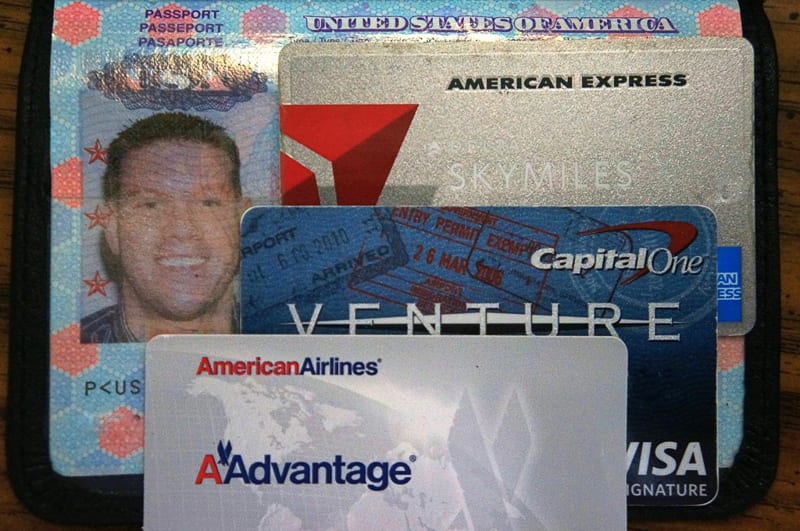5 TIPS TO GET OUT OF DEBT SO YOU CAN TRAVEL MORE

Bucket list destinations, travel planning for that next trip, family vacations, quitting your job to travel – we all have our travel dreams and goals.
Since we love all travel let’s talk about how to get out of debt. But why are we talking about how to get out of debt on a travel site?
Because I’ve spent the last 18 years traveling around the US and Europe. And I also have a degree in accounting and created a budget spreadsheet that would make a CPA’s head spin.
I have a simple motto – travel passionately, spend wisely, experience more.
You can’t do any of these if you are worried about finances, don’t have enough money to travel, or don’t understand how to manage the money you have.
No matter where you go in the world or how long you will be gone, managing your money is essential. By learning how to get out of debt, you will have the freedom to do more things in life, get rid of stress, and pursue your travel dreams.

Why Money and Travel Matter
For family trips and vacations, money and time are important factors when planning that next trip.
For those who want to take a round the world trip or spend months traveling, their focus is a little different than the typical family, couple, or solo traveler who has limited time for trips and vacations.
There are some great money saving tips for world travel that can help you save money for travel.
But if money is tight and vacation time is limited, how can you travel if you are deep in debt?
While many travelers may not think that travel and how to get out of debt go together, learning how to pay off your debt will make life a lot easier.
As a traveler, now is the time to get out of debt.
5 Tips to Get Out of Debt So You Can Travel More
1. Create a Budget
You can’t spend more money than you have. In order to monitor your spending habits, create a budget so you can see how your money is being spent.
Spending falls into three categories:
- Fixed Expenses (rent or mortgage, utilities, cable, cell phone, or any expense you pay each month that you can’t change for a period of time).
- Variable Expenses (dining, entertainment, groceries).
- Debt Expenses (credit cards, loans).
Set aside money in your budget for the fixed expenses. These are things that you must pay every month.
In the next category, budget for debt expenses (see more about debt below).
Finally, use the remaining money to budget for variable expenses. Set aside money for savings as well (especially if you want to travel).
If your spending exceeds your income, then you will need to cut back on those other expenses or eliminate fixed expense items (i.e. get rid of cable, change your cell phone plan).
When you are done with your budget, make sure you have $100 left that isn’t allocated to anything.
2. No More Credit Card Spending

Credit cards aren’t bad – if you know how to use them.
The problem for most people is that they don’t know how to manage their money wisely. Many people get out of control with their credit card spending. This is where spending exceeds income and people go into debt.
For most people, their biggest struggles with debt are credit cards. Until you begin to pay off your current credit card debts and get your spending under control with your budget, don’t let your credit card be a temptation.
Stop using them until you pay off your balances.
3. Organize Your Debts
Before you get out of debt, you need to know how much you have.
Get your latest credit card statements, loan statements, outstanding bills, and mortgage statements. Add up the total to see how much you owe. While it may be difficult to see huge numbers, this is your first step if you want to get out of debt.
4. Pay Off Your Debts in Order – smallest to largest
This is the most important step if you want to get out of debt. After getting a total of your debts, order them from smallest to largest.
With the extra $100 in your budget, add this amount plus your minimum payment to your smallest debt. Continue to pay this amount each month until the smallest debt is paid off. After that debt is paid off, roll that amount over to your next debt as your payment.
Here’s an example:
If you pay off a $1,000 credit card balance with monthly $125 payments each month, add that $125 payment to your next payment to pay off that $2000 loan. If your minimum payment is $50, you will pay $175 each month – without any impact on your current budget.
If you paid the minimum payment of $25 and $50 on the loans with 18% interest rate, you would pay off the $3,000 in 24 years paying over $3300 in interest.
By paying the $125 on the first loan and rolling that amount over to the $2,000 loan ($175 payment), you will pay off both loans in a total of 21 months with total interest paid of $508 – a savings of $2800 and 22 years.
While understanding this can be a little difficult for some people, I’ve put together a debt calculator spreadsheet where you can input your balances, interest rates, and organize your debts to help you get out of debt fast.
5. Be Patient and Disciplined: getting out of debt takes time
Following this debt strategy by paying down your debts and rolling over your payments to your next debt will save you years and money.
Let’s be honest – it took years to accumulate that debt. Car loans, student loans, credit card spending, shopping, eating out – it didn’t happen overnight.
If you want to get out of debt, it will take discipline and perseverance.
Many others have strategies and plans for how to get out of debt (Dave Ramsey is a good example). If you need help on how to get out of debt, seek the advice of a financial professional.
Read Dave’s book: The Total Money Makeover: A proven plan for financial fitness
Money Lessons from Travel
Travel is much more than just the destination, a bunch of photos, or some items to be checked off a bucket list.
I’ve learned a lot of life lessons from traveling. There’s no reason travel can’t teach us important lessons about money.
For many of us, it takes years to achieve our travel dreams or visit that dream destination. The same is true with financial freedom.
Remember that getting out of debt affects so much more of your life than travel. Paying off your debt gives you the freedom to travel as well as live. Get rid of the stress, travel, and develop better habits for managing your money.
If you want to get out of debt and travel more, there’s no better time to start than now.
By Y Travel Blog.



